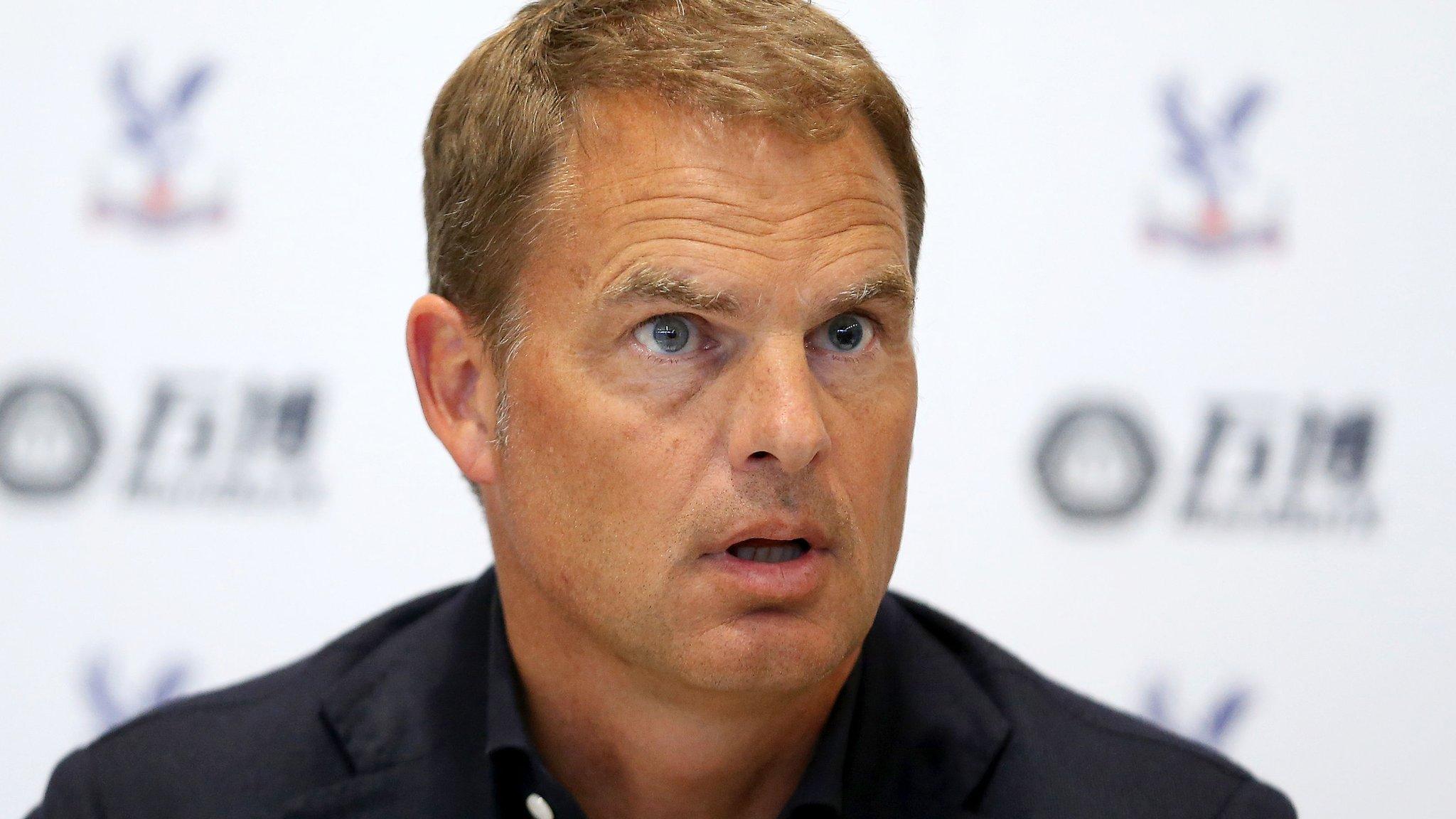World Cup 2022: Claims of corruption in Qatar bid published in Germany
- Published
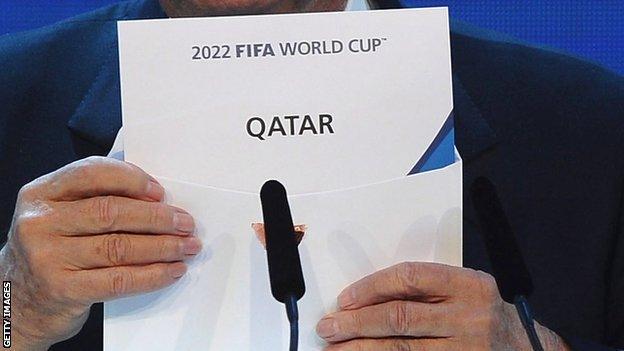
Qatar was awarded the 2022 World Cup in 2010, with Russia given the 2018 tournament
Claims of alleged corruption in Qatar's successful 2022 World Cup bid have been published in the German media.
Bild newspaper, external says it has obtained the "suppressed" 2014 report authored by former Fifa independent ethics investigator Michael Garcia.
Bild's report includes details of a $2m (£1.6m) sum allegedly paid to the 10-year-old daughter of a Fifa official.
Garcia quit in December 2014 in protest at the handling of his report into the bidding process.
The American lawyer cited a "lack of leadership" as he left football's world governing body, whose executives unanimously agreed to publish a "legally appropriate version" of his report.
That 42-page version cleared Qatar of corruption allegations.
Bild says it will be publishing the full details of Garcia's 403-page report from Tuesday.
The newspaper claims:
Three Fifa executive members were flown to a party in Rio in a private jet belonging to the Qatari federation before the vote for 2018 and 2022 hosting rights.
The Aspire Academy in Qatar was implicated "in a decisive manner" in "the manipulation of Fifa members who had the right to vote".
In a Facebook post,, external Peter Rossberg - the journalist who claims to have obtained the report - said it "does not provide the proof that the 2018 or 2022 World Cup was bought".
He described its findings instead as "like a puzzle that only makes sense when all parts are put together".
Fifa's inquiry looked at the conduct of all nine bidding teams who were trying to win the right to stage the 2022 World Cup or the 2018 event, which was awarded to Russia at the same ceremony in 2010.
Speaking before he resigned, Garcia said the version of his report that Fifa published contained "numerous materially incomplete and erroneous representations".
Simon Johnson, who led England's 2018 bid team said: "Now that I have seen Mr Garcia's statement, I am absolutely convinced that the report is a politically motivated whitewash."
British MP Damian Collins also described it as "a whitewash" and "an attempt to con people".
"The result is that allegations of bribery and serious wrongdoing remain unanswered and they are still suppressing the full report," he added.
Fifa's final report strongly criticised the English Football Association.
It said the body had tried to "curry favour" with its former vice-president Jack Warner, who quit his role in 2011 amid bribery allegations. The FA rejected the claims, insisting it "conducted a transparent bid".
French prosecutors have also been investigating the bidding process for the 2018 and 2022 World Cups, and in April questioned former Fifa president Sepp Blatter "as a witness".
France's National Public Prosecutor's Office began its investigation last year.
Analysis
BBC sports editor Dan Roan
Ever since ex-Fifa ethics chief Michael Garcia dramatically resigned in protest at the way his landmark investigation was handled two years ago, the contents of his secret report have been one of sport's great mysteries.
And while the leaked document may not represent a 'smoking gun', there are early signs it will raise further awkward questions, especially over Fifa's decision in 2014 to clear Qatar's bid to host the event.
For example, we now know that Garcia wrote that the Qatari bid used the country's sport's development academy 'Aspire', to "curry favour with executive committee members", and that this "served to undermine the integrity of the bidding process".
So why then did his Fifa ethics colleague German judge Hans-Joachim Eckert then say in his summary of the report, that his findings "were, all in all, not suited to compromise the integrity of the bidding process as a whole"? No wonder Garcia quit in protest.
Qatar's hugely contentious staging of the tournament is already under renewed scrutiny amid a diplomatic crisis with its neighbours over its alleged support of extremism. Meanwhile, as it prepares to stage the final of the Confederations Cup, 2018 host Russia has been forced to fend off new doping allegations, and concerns over the treatment of workers. These latest revelations are the last thing Fifa needs, especially with those remarkable 2010 votes still the subject of criminal investigations in Switzerland and France.
- Published26 June 2017
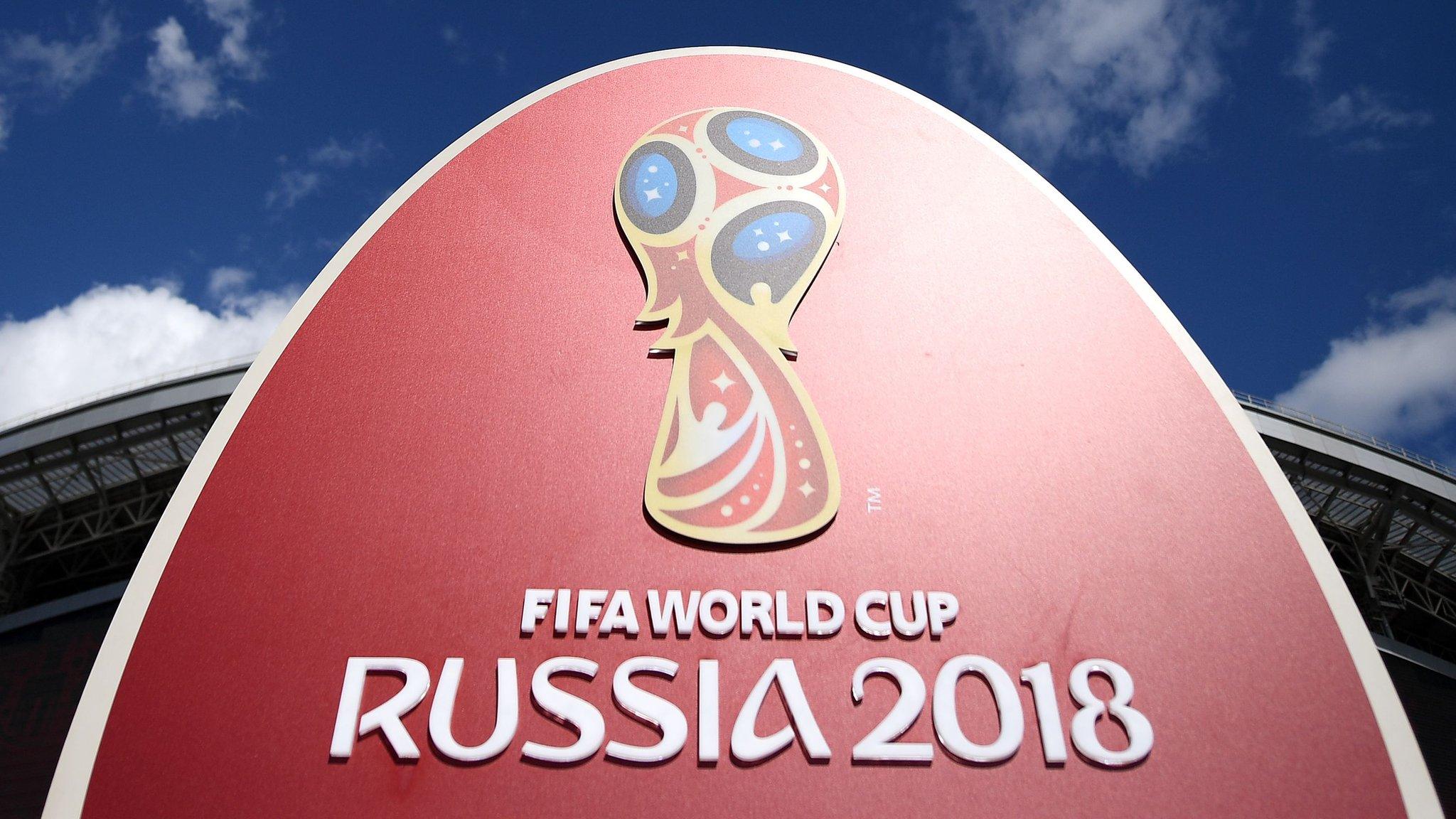
- Published14 November 2014
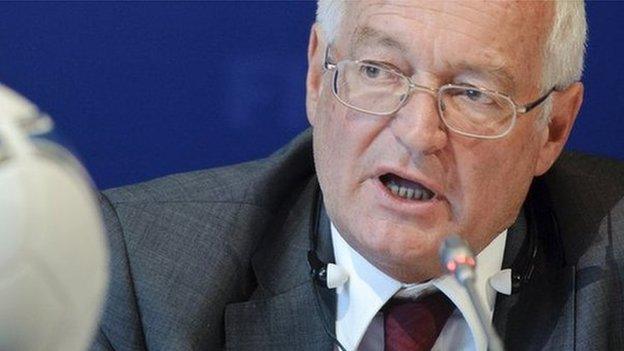
- Published26 June 2017
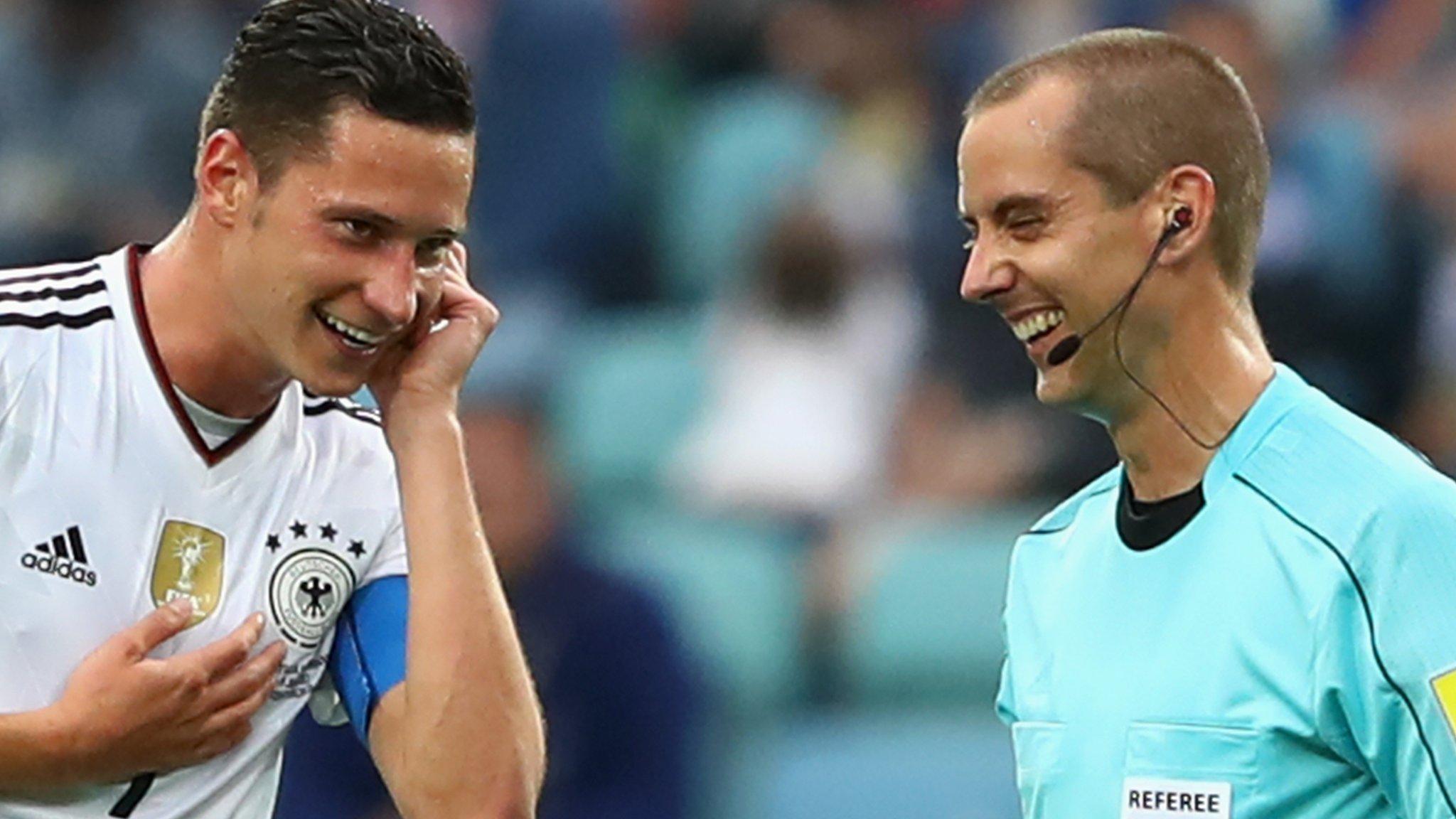
- Published26 June 2017
